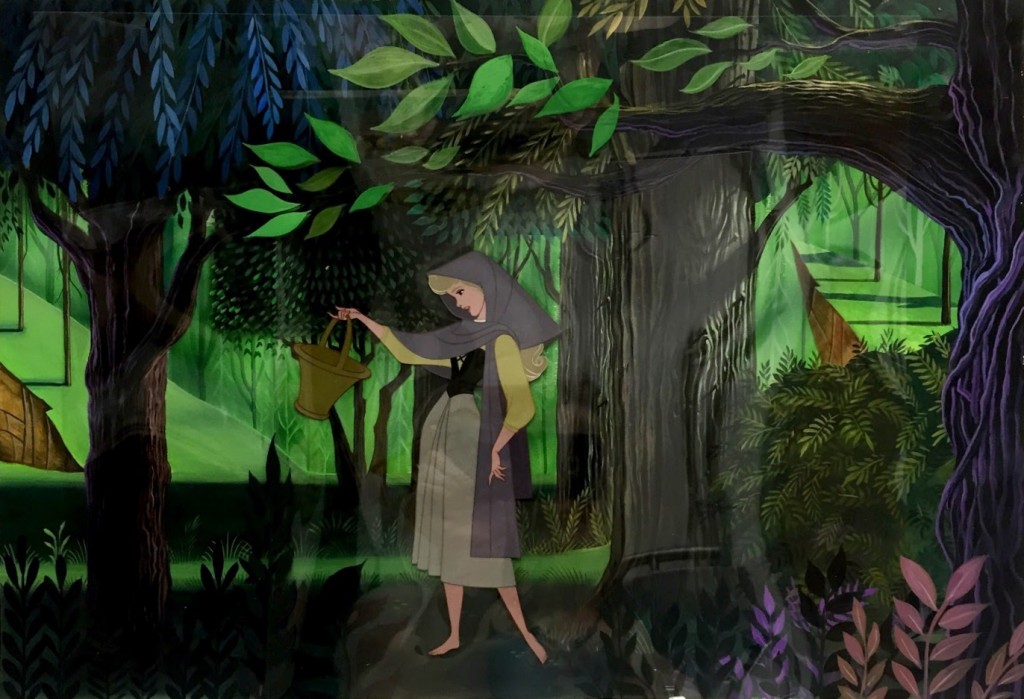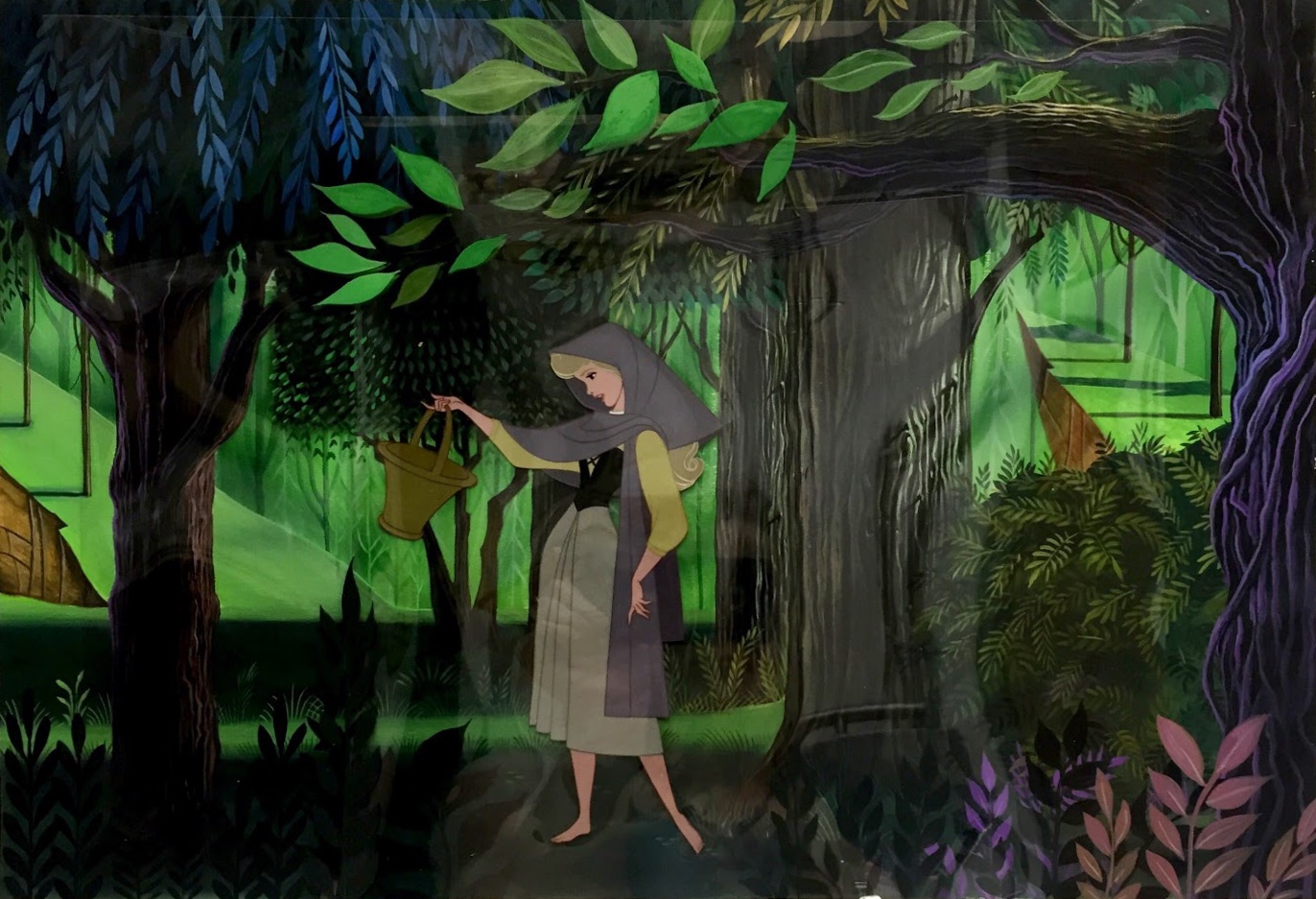
In the course of my career selling animation art and advocating for the value of animation art as a legitimate art form, i’ve discovered collectors of original production art, and even Disney interpretive art, tend to gravitate to movies that are either firsts or lasts. Sometimes they are aware of the history, and sometimes they are responding to something they feel or see, not knowing the technical or historical reasons.
For example, there are lots of Snow White lovers, not only because it is the first full length feature for Walt Disney Studios in 1937. Few dispute that it is a masterpiece of invention based on a great old story, that is very important to the history of film.
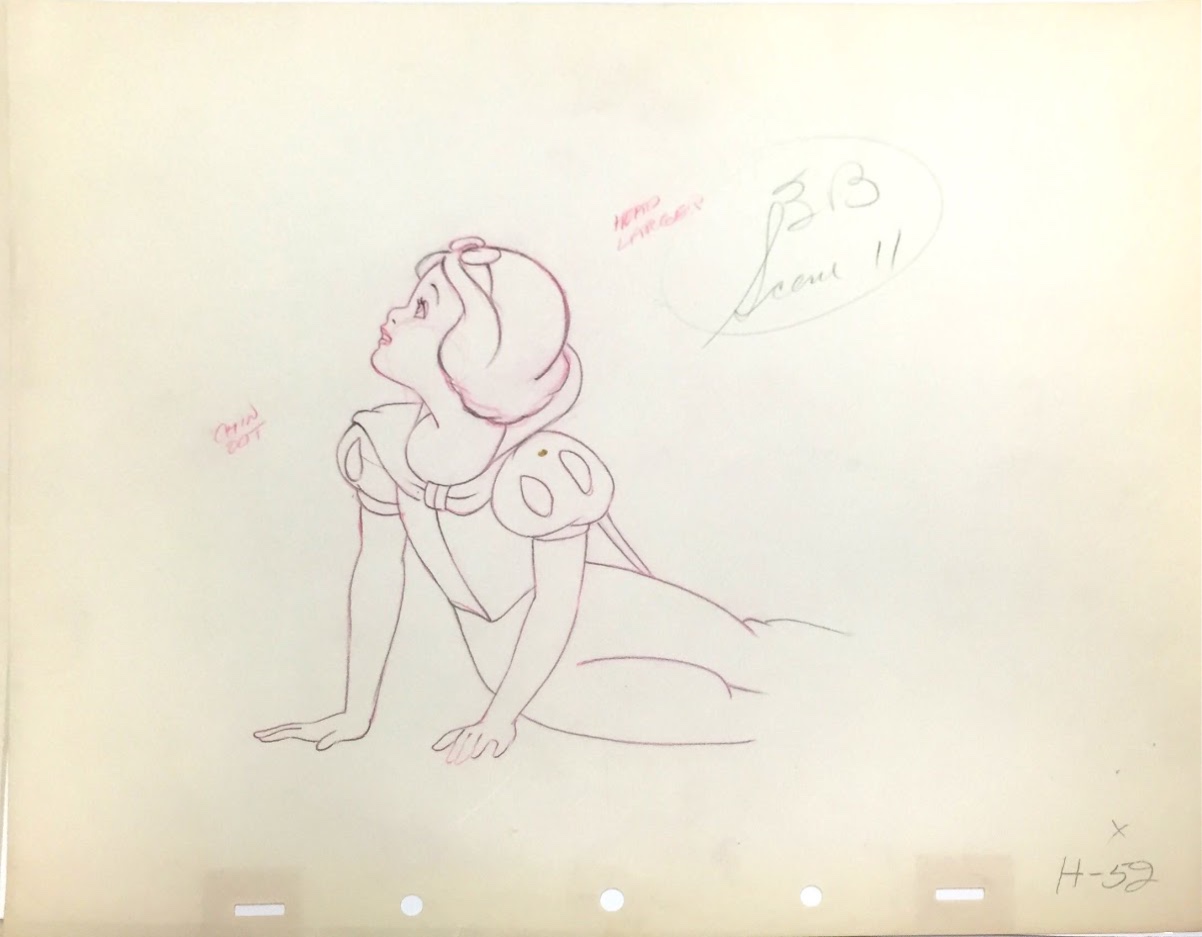
The fact that it is the first for Disney feature animation, though, means at the time there was a huge amount of experimentation and innovation. Character design made leaps forward, so that meant the villain, the Queen and her disguise, the witch, the dwarfs, the animals, and Snow White herself were full of little design elements that made the cels used to animate them fun to look at. The way the outlines of the characters on the cels were hand-inked, and the airbrush used to enhance the look of movement or “alive quality”, inadvertently made the production cels beautiful pieces of art. Of course Walt figured that out and sold them as art at the movie’s premiere.
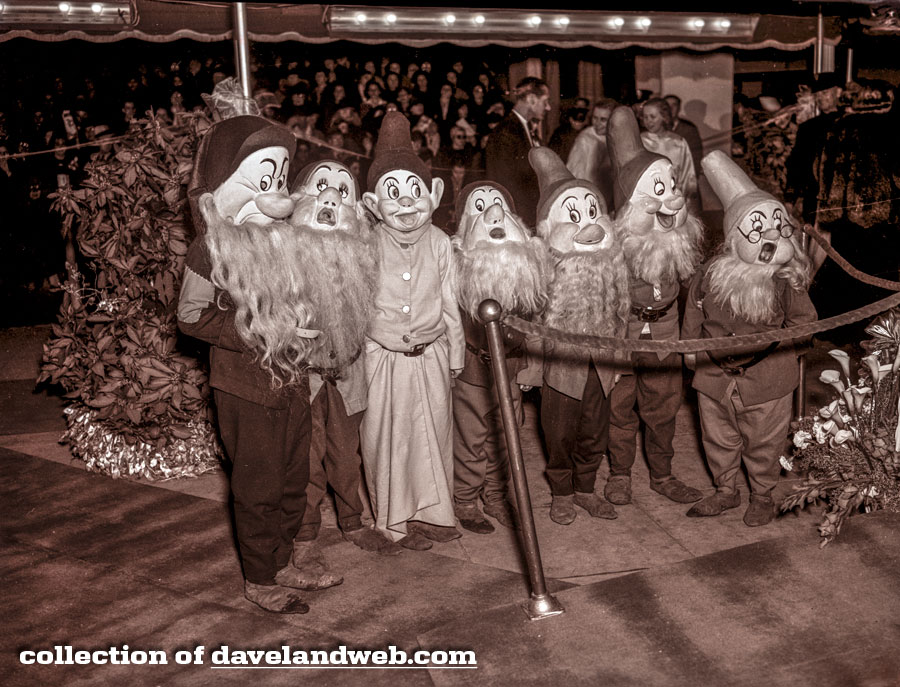
Although not the masterpiece Snow White is as a film, 1959’s Sleeping Beauty also has a slew of collectors and fans, and deservedly so. It is the last hand-inked feature film in Disney’s history. For that reason, the studio both went all out in their use of ink colors and enhancements, and experimented with the new technique of xerography they hoped to use in their next feature, 101 Dalmatians being released in 1960. For those of you who don’t know, xerography copies the original drawing onto the cel with a machine, making hand-inking the outline of the characters unnecessary. This took far less time, but also, they argued at the time, assured the integrity of the artists’ finished drawings, because they would be transferred exactly as they were drawn, onto the cel.
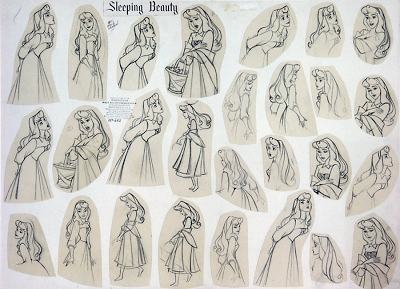
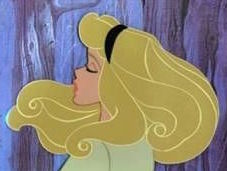
Here’s the thing: Hand-inking, on animation cels, is just lovely. What I tell people who are wondering through ArtInsights for the first time curious to learn a little about production art, if you stand back and look at two cels, one with hand-inking, and the other with xerographic line, the hand-inked cel pops right off the wall. You can see the character so much better! The character’s outline being so clearly defined, and often in a variety of colors, adds dimension to the character itself. The problem of course, is that if you love 101 Dalmatians, you have to embrace the first that was using xerography to outline all the characters in the movie. To be fair, it has its own retro charm. However, one of the reasons collectors of Sleeping Beauty are so committed to that film is because the hand-inking points to the end of an era, and as such goes out in a blaze of glory, and the cels are flamboyantly hand-inked to the point of artistry. I think the character designers and inker painters knew it would be the last time they would make such a strong mark on an animated feature, and they just put all their heart and soul into the art.
Sleeping Beauty fans love the film for lots of reasons. The voice talent is extraordinary. Mary Costa as Princess Aurora was wonderful casting, because she could bring her background as an opera star to the experience. Vera Felton, at this point a Disney veteran, having been tapped for the fairy godmother in Cinderella and the Queen of Hearts in Alice in Wonderland, among others, voiced Flora. Radio voice star Eleanor Audley had voiced Lady Tremaine in Cinderella, and absolutely rocked it as Maleficent. That character is beloved not just for her design, but certainly for the way she was voiced!
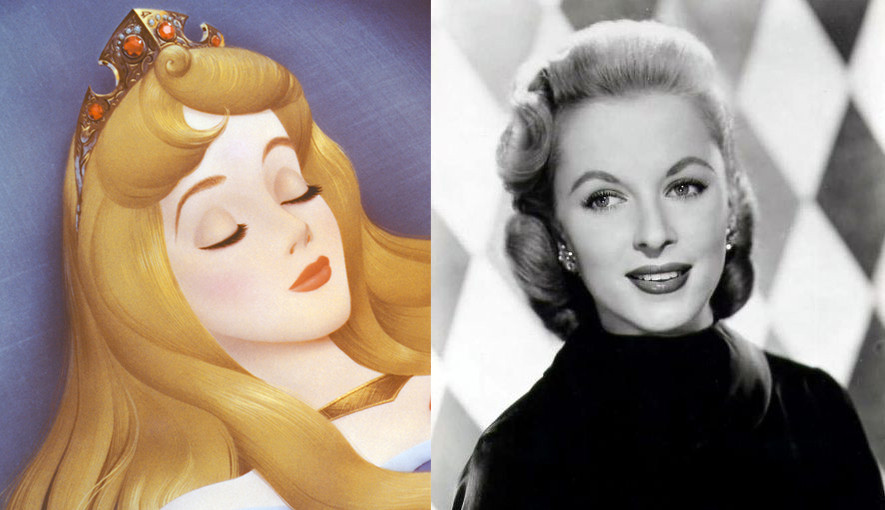
The animation artists involved in Sleeping Beauty point to a particularly fruitful time at the studio. The character animation is some of the best in Disney history. Marc Davis animated both Princess Aurora and Maleficent, Milt Kahl worked on Prince Philip, Frank Thomas and Ollie Johnston handed Flora, Fauna, and Merryweather, and Wolfgang Reitherman worked on the dragon. For those of you who know these names, that’s a lot of Disney genius in one place. Eyvind Earle, Sleeping Beauty’s art director, was known as a masterful background stylist, and invented much of the look of the movie’s backgrounds, especially the ubiquitous mid-century modern trees, modeled after those that surrounded him living in California.
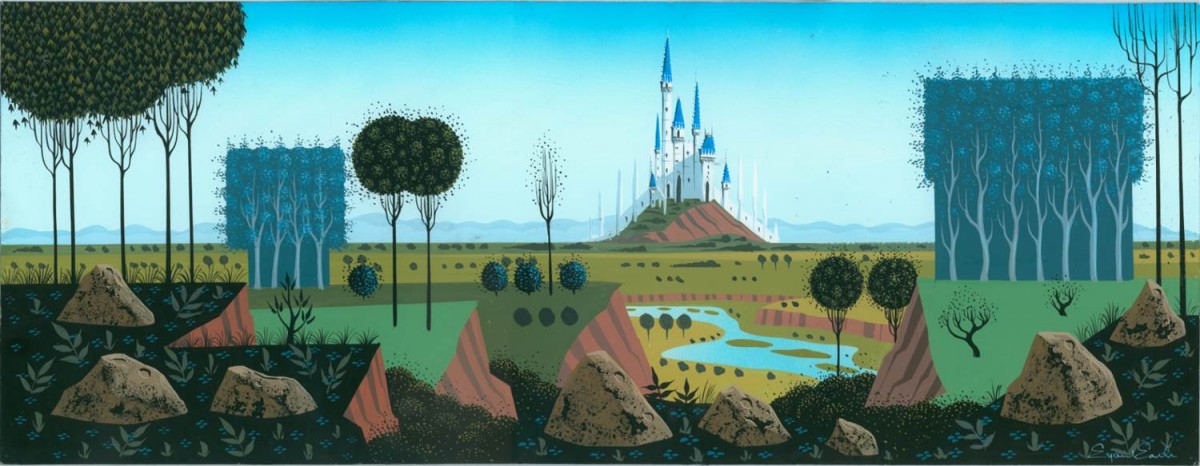
Though Sleeping Beauty didn’t succeed at first at the box office, it has since gone on to be seen as one of Disney’s best. Not that animation collectors who search avidly for good production cels from the film care about such things…they can’t be convinced by nay-sayers because the cels themselves are just so gorgeous.
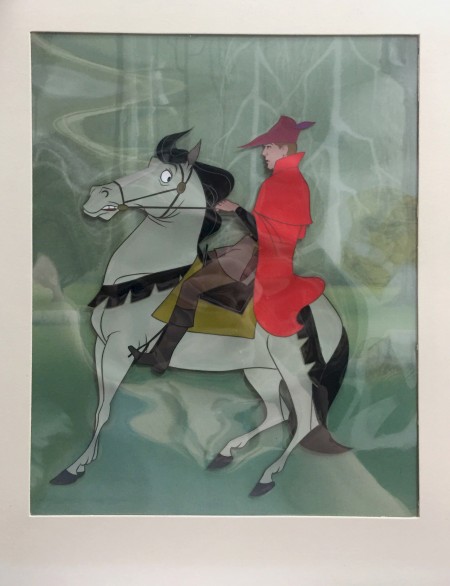
That brings us to a cel I just got in ArtInsights (you can click on the top pic to go to the page in the gallery site) One of the scenes collectors look for as part of their Sleeping Beauty animation art collection is a great cel of Briar Rose in the forest. Obviously collectors look for essential moments that represent the key scenes moving the story forward, and Briar Rose wandering through the landscape, singing to her mock prince, and meeting Prince Philip, definitely qualifies! I see lots of Briar Rose cels. There is a crazy variance in price, according to little things and big things like
Are her eyes open? Does she have her basket? Can you see the curls in her hair? (hand-inking at its best!!) Is she full figure but you can see her face well and she has a good expression? Are there animals present? Is she dancing? Is she dancing with the prince? (unlike the end of the movie, that would be comprised of, in this scene, two cels, not one with both of them on it like the ‘dance among the clouds’) has the art been restored? (I try not to sell restored art) is it in a hand prepared background? Is it a full cel or is it an art corner piece?
The Sleeping Beauty production cel we have right now has a hand-prepared background on it. Created by an artist who has worked at Disney, this artist captured the essence of Eyvind Earle’s style. So much so, that i’ve been afraid about making sure the provenance stays intact and should the art ever leave the hands of whoever I sell it to, it is clearly indicated that this is NOT from 1959. It helps that this artist created the background on archival mat board and it has a repeated stamp all over the back CRESCENT, CRESCENT, CRESCENT! (the company that makes those mats) The cel is unrestored, and yes, you can see her hair. For my part, Briar Rose cels are some of my favorite production cels because of her hair. Realize, now, that her hand-inked hair is done 24 cels per second through the entire movie. THAT’S CRAZY! No wonder they switched to xerography!
One of my favorite parts of my job being a gallery owner is finding original cels that truly capture the spirit of a character. Knowing that production cels were photographed and used the create the film, a film that has been seen by many millions of people, just brings me such joy. It’s like animation history, and indeed art history, in your hands, or on your walls. It also brings me joy knowing there are like-minded people out there who also love animation art. Being in the industry since 1988, I saw a time when few knew what the heck it even was! I still have people who come in and think it’s all kid stuff, but I hope with blogs like these I can change a few minds, or reaffirm the love of cartoons and animation art in a few collectors, and even more Disney lovers!
For ArtInsights, i’m Leslie Combemale.
These are just thoughts and musings of a gallery owner and lover or art and animation. There are lots of books that will go far more in-depth about the history of animation and Disney. Please feel free to ask questions below or email the gallery if you are looking for Sleeping Beauty art or animation film art of any kind!
Further reading on Sleeping Beauty production cels, Sleeping Beauty the feature film, and the history of Disney animation:
Sleeping Beauty Platinum dvd (commentary and extra info)
An article on Ink and Paint:
http://www.vanityfair.com/culture/2010/03/disney-animation-girls-201003
Also, stay tuned for an upcoming book by Mindy Johnson called Ink and Paint: The Women of Disney’s Animation Department!
Once Upon A Time: Sleeping Beauty History
Before Ever After: Animation Lectures
Demystifying Disney History
Disney’s Illusions of Life
Layouts and Backgrounds from the Disney archives
The Encyclopedia of Walt Disney Animated Characters

